by Daniel Hathaway
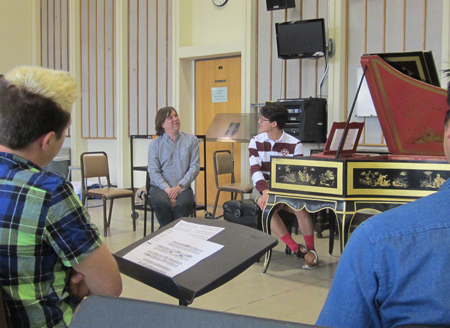
He also noted — in a discussion of playing difficult trills — that he had stopped admiring effort over results (he related that to grant writing), and had less than complimentary things to say about the traverso, though he suggested trilling like a flute would.
One of Sempé’s students on Thursday morning was 18-year-old Korean-born harpsichordist and recorder player Peter Lim (pictured above). He and his 14-year-old sister and traverso player Kayla are two of the young sensations of BPI this year, having been largely self-taught through watching YouTube videos. I caught up with both of them in the Con Lounge.
Peter, who just turned 18 in February, will enter Oberlin as a first-year student in the fall. His beginnings in music were both conventional and unusual.
“I started modern piano lessons at 7, then I picked up the recorder in Korea going into the second grade. I just fell in love with it,” he said. “My music teacher was especially fond of early music. I just kept playing, playing, playing. I never had a lesson, just watched a lot of videos and heard a lot of recordings and tried to get myself to play like them.” Astonishingly, from what I heard in a master class when he performed Royer’s Vertigo, he only began playing harpsichord a few months ago. He said he never thought that early music would become such a passion.
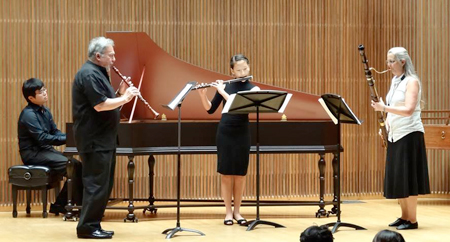
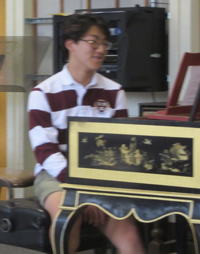
Kayla, on the other hand, immediately answered the career question with “I want to be an orthodontist and do music for fun.” Her extra-musical interests are in sports — she’s on the swim team and plays field hockey.
The Lim family — including Peter and Kayla’s younger sister — moved from South Korea to the Eastern shore of Maryland five years ago, where the father works in floor tiling, and the mother is a housewife.
BPI has been valuable for both Peter and Kayla in terms of gaining experience and having access to fine instruments. Peter notes that it’s also been stressful — he’s doubled up on masterclasses and ensembles both in recorder and harpsichord — but that even with the limited time he has to practice and jam with his new friends, he’ll definitely be back. “I wish I could come here for the next 20 or 30 years.”
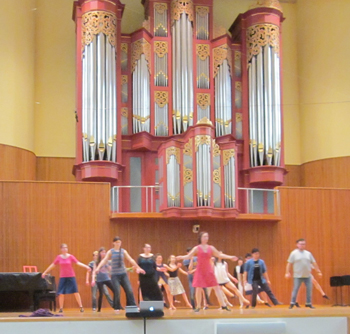
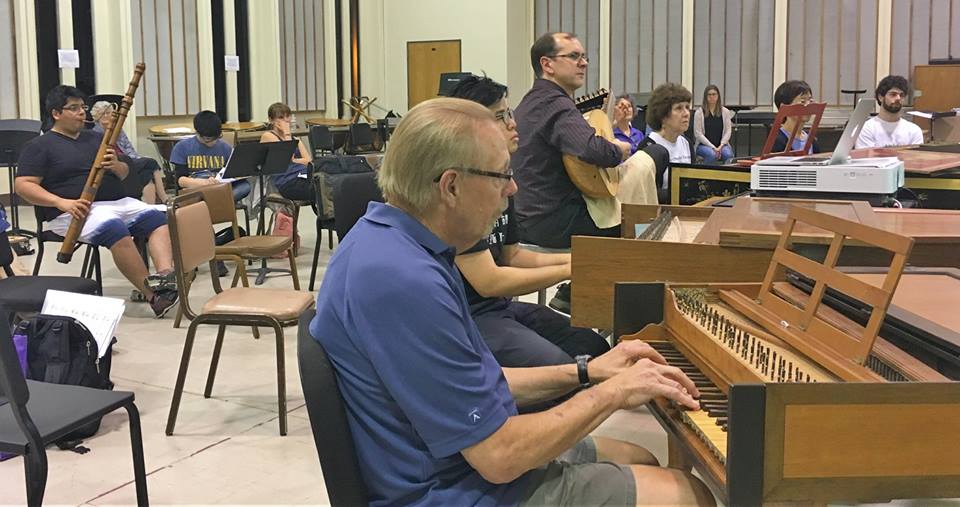
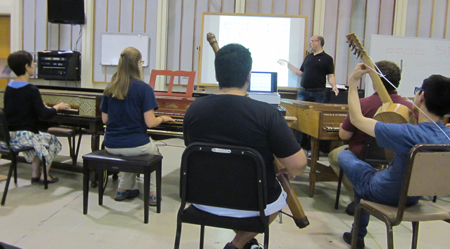
Longing = Suspensions
Confusion = Dissonance
Agitation = Jagged motives
Rage = Fast notes and big chords
Ecstasy = Upward arpeggios
Playfulness = Off the beat
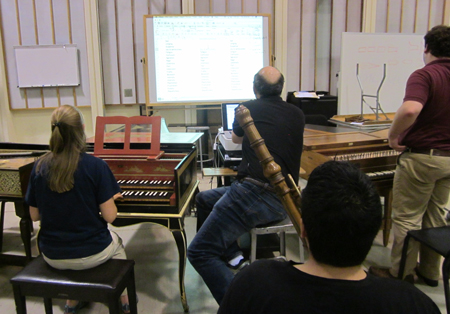
Published on ClevelandClassical.com July 5, 2017.
Click here for a printable copy of this article


